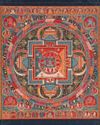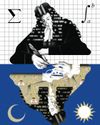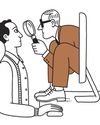
The other day, the keyboard player Kristian Bezuidenhout was standing onstage at Hertz Hall, on the campus of the University of California, Berkeley, in a state of slight panic. Around him were four instruments housed at the university’s music department, representing stages in keyboard development from the seventeenth century to the mid-nineteenth. On one side was a harpsichord, of the kind that Bach might have played. In the middle were two fortepianos—early-stage pianos with a light action and a crisp, characterful sound. Behind them was an 1854 grand piano, from the illustrious firm of Érard. Modern grands are well-tooled machines, fairly predictable in their behavior, even if virtuosos fuss over them and badger technicians with requests for adjustments. Older pianos, with their variegated mechanisms and idiosyncratic construction, are far more temperamental. To present a program on four different historical instruments—as Bezuidenhout was going to do later that day, in a recital for the Berkeley series Cal Performances—is to invite chaos.
“These older instruments, and even the modern copies, function so differently in rehearsal and in concert,” Bezuidenhout told me. “Sometimes you have this feeling in rehearsal: ‘Oh, yes, this is really making sense, the piano is really helping me.’ Then, in concert, they kind of turn on you. The five-octave pianos, especially, can betray you, leave you in the dust. You say to yourself, ‘Where is that sound I heard four hours ago?’ It may have to do with a change of humidity, or a way of reacting to the room. But it’s as if they can sense your level of stress, your preoccupation, and then they seize up—like some kind of really mean cat.”
هذه القصة مأخوذة من طبعة November 21, 2022 من The New Yorker.
ابدأ النسخة التجريبية المجانية من Magzter GOLD لمدة 7 أيام للوصول إلى آلاف القصص المتميزة المنسقة وأكثر من 9,000 مجلة وصحيفة.
بالفعل مشترك ? تسجيل الدخول
هذه القصة مأخوذة من طبعة November 21, 2022 من The New Yorker.
ابدأ النسخة التجريبية المجانية من Magzter GOLD لمدة 7 أيام للوصول إلى آلاف القصص المتميزة المنسقة وأكثر من 9,000 مجلة وصحيفة.
بالفعل مشترك? تسجيل الدخول

MEAN TIME
“Hard Truths.”

ENLIGHTEN ME
The secret beauty of mandalas.

THE BEST OF THEM
His was a genius for the ages. Will Gottfried Leibniz ever get his due?

DEATH CULT
Yukio Mishima’ tortured obsessions were his making—and his unmaking.

Prophecy
The night of Dev’s twenty-second birthday, he was invited to sit with the elders after dinner.

A TALE OF TWO DISTRICTS
Lauren Boebert and Colorado’s red-blue divide.

THE TIKTOK TRAIL
Andean migrants draw others to the U.S. with videos depicting themselves as living the American Dream.

LOVE AND THEFT
Did a best-selling romantasy novelist steal another writer's story?

OUR NEW TWO-FACTOR AUTHENTICATION SYSTEM
Our two-factor authentication system is expanding because text messages and e-mailed codes are becoming less secure. Also, we’re committed to making sure your log-in process is more of a hassle than it needs to be.

STILL PROCESSING
Why is the American diet so deadly?